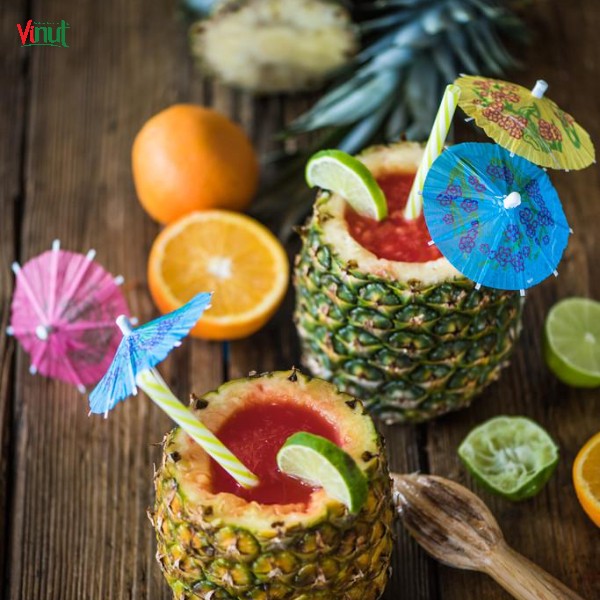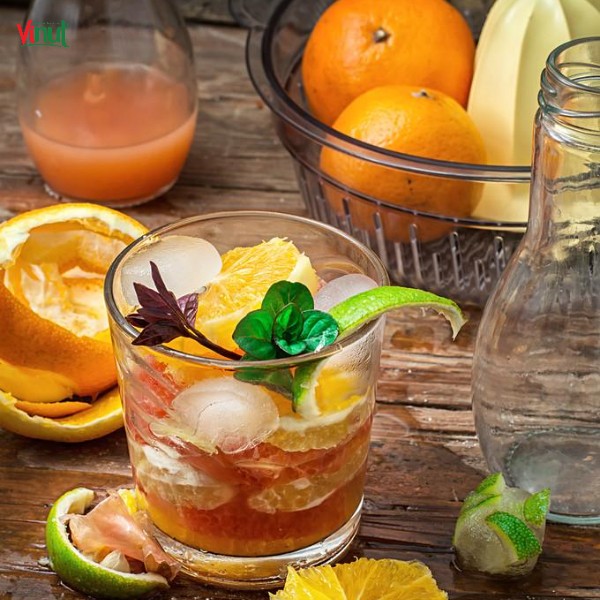
News
Top 10 Future Trends in the Tropical Juice Industry

The tropical juice industry is booming, with consumers increasingly seeking healthier, more exotic beverage options. As the market continues to expand, several trends are shaping its future. From sustainability to innovative flavors, these trends are set to redefine how we enjoy our favorite tropical juices. Let’s Cojo Cojo dive into the top 10 future trends in the tropical juice industry that you need to know.

1. Sustainability and Eco-Friendly Packaging
Green Packaging Revolution
Consumers are becoming more eco-conscious, demanding sustainable packaging solutions. Tropical juice brands are responding by adopting recyclable, biodegradable, and reusable packaging. This shift not only reduces environmental impact but also aligns with consumer values.
Examples of Eco-Friendly Initiatives
- Biodegradable bottles
- Recyclable cartons
- Reusable glass containers
2. Organic and Natural Ingredients
The Organic Boom
There’s a growing preference for organic and natural products. Consumers are looking for juices made from organically grown fruits without synthetic pesticides or additives. This trend is driven by health-conscious individuals seeking cleaner, healthier options.
Benefits of Organic Juices
- No harmful chemicals
- Richer nutrient content
- Better taste

3. Exotic and Unique Flavors
Exploring New Tastes
The demand for exotic and unique flavors is on the rise. Consumers are adventurous, seeking out tropical juices with unusual flavor profiles. Brands are experimenting with blends that feature fruits like dragon fruit, soursop, and mangosteen.
Popular Exotic Flavors
4. Functional Beverages
Health Benefits in a Bottle
Functional beverages are juices fortified with additional health benefits. Ingredients like probiotics, antioxidants, and vitamins are added to tropical juices to enhance their nutritional value and cater to health-focused consumers.
Common Functional Additives
- Probiotics for gut health
- Antioxidants for immune support
- Vitamins for overall wellness

5. Cold-Pressed Juices
Cold-Pressed Craze
Cold-pressed juices are gaining popularity due to their higher nutritional content and fresher taste. This method involves pressing fruits to extract juice without using heat, preserving more vitamins and enzymes.
Advantages of Cold-Pressed Juices
- Higher nutrient retention
- Fresher flavor
- Longer shelf life
6. Reduced Sugar and Low-Calorie Options
Health-Conscious Choices
With increasing awareness of sugar-related health issues, there is a significant shift towards reduced sugar and low-calorie tropical juices. Brands are formulating juices with natural sweeteners and fewer calories to meet consumer demand.
Low-Sugar Alternatives
- Stevia-sweetened juices
- Naturally sweetened blends
- Juice-water mixes

7. Plant-Based and Vegan Options
Embracing Plant-Based Diets
The rise of plant-based diets is influencing the tropical juice industry. Consumers are looking for vegan-friendly options that align with their dietary choices. This includes juices that avoid animal-derived ingredients and focus on plant-based nutrition.
Popular Plant-Based Juices
- Coconut Water
- Almond Milk Blends
- Plant-Based Protein Juices
8. Transparency and Clean Labels
Clear and Honest Labeling
Consumers want to know what’s in their juice. Brands are responding with transparent and clean labeling practices, providing detailed information about ingredients, sourcing, and nutritional content.
What to Look For
- Ingredient transparency
- Clear nutritional information
- Source of fruits
9. Local and Fair Trade Sourcing
Supporting Local and Ethical Practices
There’s a growing trend towards supporting local farmers and fair trade practices. Brands are sourcing tropical fruits from local and fair trade farms, ensuring ethical practices and boosting local economies.
Benefits of Local Sourcing
- Fresher ingredients
- Support for local farmers
- Ethical and fair trade practices

10. Personalized and Customizable Juices
Tailored to Your Taste
Personalization is a key trend in the tropical juice industry. Customers can customize their juices by adjusting sweetness, adding supplements, and choosing specific fruit combinations.
Customization Options
- Sweetness levels
- Add-ins like chia seeds or spirulina
- Custom fruit blends
Conclusion
The tropical juice industry is evolving rapidly, driven by consumer demand for healthier, more sustainable, and innovative products. From eco-friendly packaging to personalized juice blends, these trends are shaping the future of tropical juices. As you explore these trends, you’ll not only enjoy delicious tropical flavors but also support a more sustainable and health-conscious industry.
FAQs
1. What are the benefits of cold-pressed juices?
Cold-pressed juices retain more nutrients and enzymes, providing a fresher taste and higher nutritional value compared to traditional juices.
2. Are organic tropical juices worth the extra cost?
Yes, organic tropical juices are worth the extra cost as they are free from synthetic pesticides and chemicals, offering a healthier and often tastier option.
3. How can I identify eco-friendly juice packaging?
Look for labels indicating recyclable, biodegradable, or reusable packaging. Brands often highlight their sustainability efforts on their packaging.
4. What are some popular functional ingredients added to tropical juices?
Common functional ingredients include probiotics for digestive health, antioxidants for immune support, and added vitamins for overall wellness.
5. Can I customize my tropical juice at home?
Yes, you can customize your tropical juice at home by blending different fruits, adjusting sweetness with natural sweeteners, and adding supplements like chia seeds or spirulina.
